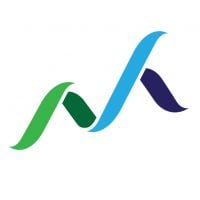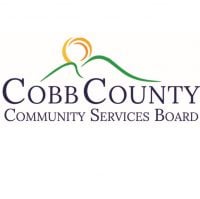ProActive Consulting
Drug Rehab Center in Atlanta, Georgia
- Mental Health
- Dual Diagnosis
- Alcoholism
ProActive Consulting in Atlanta, Georgia offers a comprehensive range of addiction and substance abuse services, including medication-assisted treatments, evidence-based therapies, and alternative approaches, as well as aftercare and community outreach programs.
About This Georgia Facility
ProActive Consulting in Atlanta, Georgia is a full-service addiction and substance abuse consultation center. With a team of experienced clinicians and providers, they offer a wide range of assessments, clinical evaluations, diagnosis, and treatment for those struggling with addiction. Services include individual and group counseling, as well as intervention, family therapy, and recovery support. ProActive Consulting also provides aftercare services and relapse prevention plans.
ProActive Consulting provides a collaborative approach to addiction treatment and is committed to helping individuals and families to find hope, healing and recovery. Their services include specialized medication-assisted treatments tailored to individuals’ needs, as well as evidence-based treatment approaches such as Cognitive Behavioral Therapy and Dialectical Behavioral Therapy. They also offer more alternative approaches to treatment such as art therapy, music therapy, yoga, and mindfulness.
ProActive Consulting is accredited by the Commission on Accreditation of Rehabilitation Facilities and is licensed by the State of Georgia. They have been voted as a Center of Excellence by the National Alliance on Mental Illness and have won several awards for their commitment to providing quality substance abuse services. In addition to their comprehensive treatment approach, ProActive Consulting also provides community outreach and education programs to help bring awareness to the issue of substance abuse.
Genders
Ages
Modality
Additional
Accreditations

CARF
The Commission on Accreditation of Rehabilitation Facilities (CARF) is a non-profit organization that specifically accredits rehab organizations. Founded in 1966, CARF's, mission is to help service providers like rehab facilities maintain high standards of care.
Conditions and Issues Treated
There are different kinds of Dual Diagnosis:. A person who simultaneously experiences both a mental illness and an addiction disorder. Or, a person who experiences one or more coexisting (simultaneous) mental health conditions in addition to a primary substance use disorder.
The treatment requires a multi-disciplinary approach, it’s crucial for individuals to partner up with a healthcare provider who understands all the recovery components.
Alcohol Abuse, Dual Diagnosis (Co-Occuring Disorders), Mental Health
Levels of Care Offered at ProActive Consulting
This center offers a variety of custom treatment tailored to individual recovery. Currently available are Dual-Diagnosis, Intensive Outpatient, Outpatient, with additional therapies available as listed below.
An Intensive Outpatient Program (IOP) is a form of drug treatment that allows individuals to receive the therapy they need while remaining in their homes and community.
An IOP is typically 3-5 days per week, at least 4 hours each day of treatment. Treatment can last for a few months or longer, depending on the situation.
An IOP is a step down from an inpatient treatment center and can be used as a step down from an inpatient stay or as a more intense form of outpatient treatment. IOPs allow for the flexibility to continue working and living at home while still meeting treatment demands.
The outpatient programs in Atlanta, GA are for those addicted drugs or alcohol. The goal of the outpatient rehabilitation program is to make them stop abusing drugs or alcohol, reduce drug use or addictive behaviors, and become entirely sober. It is generally required to attend the outpatient program for 10-12 hours every week.
Patients can be administered on-the-spot medication to ease withdrawal symptoms such as anxiety, increased heart rate, and even depression. Groups such as Alcoholics Anonymous (AA) and Narcotics Anonymous (NA) can be used as a part of outpatient treatment to help maintain sobriety.
Therapies & Programs
People in addiction recovery can benefit from individual therapy. This type of therapy involves meeting with a therapist one-on-one. This allows for a personal and trusting relationship to be built so that the patient can be truly themselves and express any emotions they feel. Individual therapy leads to greater understanding and peace about your triggers for addiction and coping strategies to prevent relapse.
Couples therapy for drug addiction is based on the belief that addiction is a family disease. Everyone involved with an addict, not just the addict themselves, is affected by their behavior and the changes the addict goes through. The relationship also changes the addict’s significant other and has likely picked up some codependent behaviors. Codependency is a term used to describe a person obsessed with another person and their needs and feelings while neglecting their own. Addicts are usually people-pleasers, so it is understandable how one can become codependent in relationships with addicts.
Family therapy is a type of group problem-solving that aims to improve communication and relationships between the patient, their family, and sometimes friends. The main goal of family therapy for drug addiction is to create an environment where communication can occur without judgment, hostility, or blame. The therapist is with the family as they learn to communicate with each other differently, especially with the addict when s/he is using.
Group therapy sessions are held in rehab facilities, clinics, churches or community centers that offer drug addiction treatment. People who attend these groups are encouraged to voice their feelings and support other addicts in recovery. This helps group members strengthen their own recovery program while cheering on others who are struggling with sobriety.
Group therapy sessions provide recovering addicts with a chance to cope with everyday situations that many face. Group therapy sessions are held in rehab facilities, clinics, churches or community centers that offer drug addiction treatment.
People who attend these groups are encouraged to voice their feelings and support other addicts in recovery. This helps group members strengthen their own recovery program while cheering on others who are struggling with sobriety.
If you’re looking for addiction treatment, it’s important to find a facility that offers trauma therapy. This type of therapy helps people process and understand the past traumas that have led to their addiction. Trauma therapists will work with clients to help them understand their past and present relationships and show them that they are worthy of love. This therapy is typically done using visualization, discussion, and writing down thoughts and feelings.
Trauma Therapy is a form of therapy that involves working with a patient to help them process and understand the past trauma(s) in their life. This therapy is typically done using techniques such as visualization, discussion, and writing down thoughts and feelings. The main goals of trauma therapy is to help clients express their emotions and talk about what they are feeling.
Dialectical Behavior Therapy (DBT) is a form of cognitive-behavioral therapy that helps people understand how they connect their thoughts, behaviors, and feelings. It can give them more control over their actions, effectively stopping self-harm ideations and attempts in some patients. It also helps put those with borderline personality disorder into control for managing mental struggles.
A new study has shown that DBT works for those with self-harm behaviors and addictions by giving them therapy they can relate to and understand.
Cognitive Behavioral Therapy (CBT) helps addicts identify faulty, negative thinking so that they can work together with the therapist to find healthier ways of thinking. CBT focuses on specific aspects of each person’s thinking, feeling, physiology, and behavior. It aims to identify specific problems in these areas, and create a personalized treatment strategy.
Cognitive Behavioral Treatment (CBT), Couples Therapy, Dialectical Behavioral Therapy (DBT), Dual-Diagnosis, Experiential Therapy, Family Therapy, Group Therapy, Individual Therapy, Motivational Interviewing, Outpatient Treatment (OP), Residential Long Term (>30 Days), Trauma Therapy
Patient Experience
Experiential Therapy at ProActive Consulting
Experiential Therapy allows addicts to release emotions in a safe environment. The process involves addicts painting their feelings and releasing them on a canvas. LPE – Love, Peace, and Equilibrium is one of the most popular forms of experiential therapy.
Payment Options Accepted
For specific insurance or payment methods please contact us.
Is your insurance accepted?
Ask an expert, call (888) 674-0062
Additional Details
Specifics, location, and helpful extra information.
Atlanta, Georgia 30339 Phone Number(770) 319-7468 Meta DetailsUpdated November 25, 2023
Staff Verified
Patient Reviews
There are no reviews yet. Be the first one to write one.
Atlanta, Georgia Addiction Information
Prescription opioid use has caused a large increase in the total amount of overdoses in Georgia. Almost 12% of the Georgia population uses illicit drugs each year, and slightly over 3.5% also abuses alcohol at the same time. This does not include those who binge-drink at least once a month, which includes 20% of all Georgians.
Addiction statistics for 2019 show that about 62% of people died from drug overdoses in Atlanta. Opioids were involved in 59.5% of those deaths. The community is plagued by the illegal drug trade, which contributes to crime and violence. In 2013, there were 9,570 admissions to substance abuse treatment programs in Atlanta. With patience and perseverance, you should be able to find the perfect treatment facility for your needs.
Treatment in Nearby Cities
- Alpharetta, GA (17.4 mi.)
- East Point, GA (13.5 mi.)
- Lyons, GA (169.9 mi.)
- Elberton, GA (93.6 mi.)
- Sparta, GA (95.7 mi.)
Centers near ProActive Consulting




The facility name, logo and brand are the property and registered trademarks of ProActive Consulting, and are being used for identification and informational purposes only. Use of these names, logos and brands shall not imply endorsement. RehabNow.org is not affiliated with or sponsored by ProActive Consulting.



